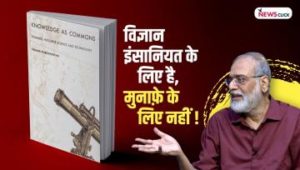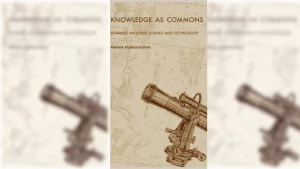Narayana Guru (1856-1928), poet-saint and social reformer, who created whirlwinds in 19th-20th century Malayali society with his takes on caste, religion and equality, has made an elegant entry into the world of Karnatik music, a space still largely plagued by patriarchy and brahmanical hegemony. Some of his prominent verses have now been set in tune to the technicalities of Karnatik classical world by singer T M Krishna, who performed them at a concert titled “Rooh-e-nool” at Mumbai’s Tata Theatre NCPA on November 1.
Narayana Guru spearheaded one of the most popular anti-caste movements of 19th–20th century Kerala and is considered one of the builders of modern Kerala and leaders of its renaissance. Guru’s resistance was both spiritual and political in nature and is still remembered for having upturned local “upper” caste control over right to pray or religion in the region, particularly southern Kerala.
T M Krishna too is known for his piercing questions to the southern Indian classical art world, still largely within the firm hold of brahmin hegemony. Its as part of his unconventional questions and efforts at altering the general structure of the Karnatik kutcheri (concert) — a heavily Sanskritised space — that he has taken Narayana Guru to it. Before Guru, it was radical poet Perumal Murugan, whose political, particularly anti-caste poetry, was set to tune and taken to Karnatik stages across the world by Krishna.
Mukulika R of the Indian Cultural Forum briefly spoke to T M Krishna (@tmkrishna) about the project, Guru himself and more.

Mukulika R (MR): Guru is not the first “saint” to enter the world of classical music in the country. How different is Guru’s poetry compared to the work of others, say, Jayadeva or Andal, who made an entry into this world much before him?
T M Krishna (TMK): What really strikes me about Guru’s work is the diversity in lyrical style. This is indeed rare, because at times the use of language is so very different that it makes you wonder whether it was indeed the same person who wrote these different compositions. I feel these aesthetic changes are also a record of the movements within Guru. The other aspect is that he wrote in three languages, Malayalam, Tamil and Sanskrit. We live in times when people in power are demanding that we grant linguistic supremacy to Hindi. Guru translated a song from Sanskrit to Tamil, though his natural language was Malayalam. This is the India we want.
Also Read | Guru enters the Karnatik
MR: How did this project come about and why Guru?
TMK: This idea germinated during conversations between Anish Damodaran, Dinakiran, Riyaz Komu and myself during discussions at the Backwaters Collective conferences in Kochi. Guru is an essential voice and a voice we need to listen intently. He brings together deep faith, belief and the possibility of transcendence, with sharp and acute socio-political questioning. Guru surrenders entirely to both discourses without allowing his “self” to infringe either. This in itself is a revelation. I am sure if Guru was with us today he would been among the first to walk every street to fight against the religious, linguistic and casteist bigotry that we are engulfed with. He is not physically here but we can and should sing his words and use them as a bridge to enable empathetic conversations between diverse people.
MR: What are some of the prominent verses that have been chosen?
TMK: The verses we chose came from numerous compositions that Guru wrote and covered his life span. We included verses from the Darshana Mala, Deiva Dashakam, Bhadrakali Ashtakam, Shri Krishna Darshanam, Guhaashtakam, Chit-jada Chintanam, Kundalini Pattu, Janani Navaratna Manjari, Tevara Padhigangal and another Tamil song.
Also Read | Cultural Resistance through Carnatic Music
MR: What is the future of this project? Will Guru be heard in more of your concerts around the world?
TMK: Guru is a metaphor for self-discovery and critical thinking. We will perform his compositions across the world and there are already many invitations. We also have plans of offering scholarships to artists so that many more can work with his writing. Beyond this, we will try to build a deep and serious conversation between Guru and the numerous philosophers and thinkers who lived their lives asking difficult questions and awakened us (through the process). This will not be restricted to India.



